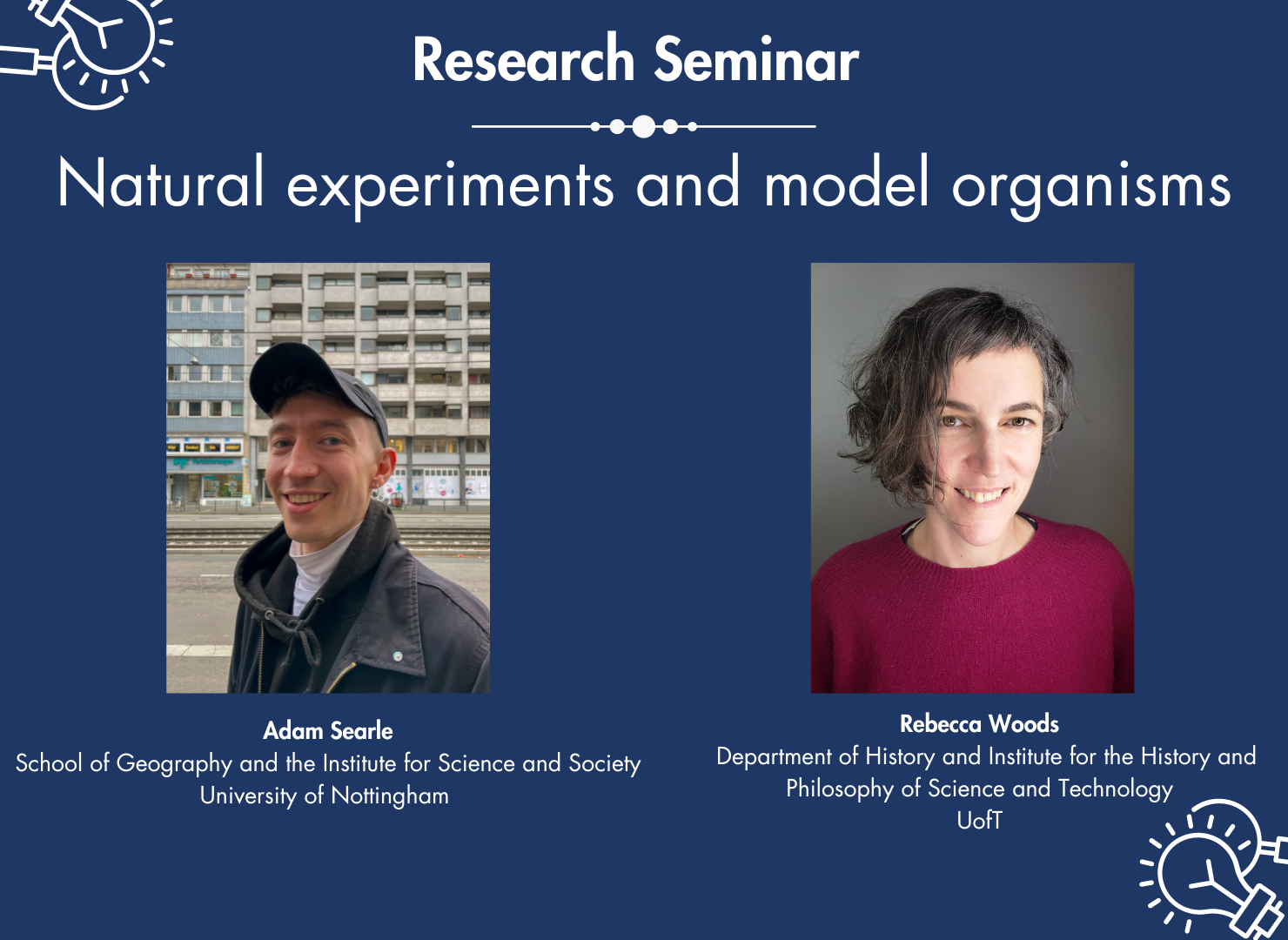Research Seminar-Second Session-Fall 2024
When and Where
Speakers
Description
Research Seminar
In Person Event
For a copy of the paper, please write two week in advance of a Research Seminar to Adriana Leviston
adriana.leviston@utoronto.ca
Professors Adam Searle and Rebecca Woods will present: "Natural Experiments and Model Organisms: Soay Sheep, Postwar Ecology, and Romantic Natures on the St. Kilda Archipielago, Scotland"
The St Kilda archipelago in the North Atlantic has a disproportionate representation in scientific literature relative to its size, its remoteness, and its historical human settlement. The most remote locale in the British Isles, its endemic fauna (composed primarily of sea birds and feral sheep) attracted ecological scientists in the aftermath of its eventual abandonment from human settlers in 1930; ever since, the isles have played a prominent role in British postwar ecology and natural history. Our analysis focuses specifically on scientific research relating to Soay sheep on the island of Hirta, deemed a model organism by population ecologists studying the dynamics of island populations. Often cited as the only living remnant of pre-Bronze Age Britain, Soays are referred to as ‘the oldest and best-preserved cultural artefact in Scotland,’ compared to Neolithic rock carvings in terms of historical significance. Our paper offers a historical account of the St Kilda Soay Sheep Project, initiated in 1956 by John Morton Boyd, before turning to the project’s contemporary legacies and ongoing research. We examine the cultural and historical factors that have allowed St Kilda to be refigured as a ‘natural experiment’: exploring the intellectual milieu of postwar Britain and reinvigorations of romantic natures, the effects of Christianity on preferences in field ecology, and the continued interference of multiple human actors required to maintain ‘laboratory conditions.’

Author Biographies
Adam Searle is a cultural and historical geographer from Manchester. He is a Senior Research Fellow at the School of Geography and the Institute for Science and Society, University of Nottingham. His research broadly examines how the lives of humans and other species are affected by science and technology.
Rebecca Woods is an associate professor at the University of Toronto, jointly appointed to the Department of History and the Institute for the History and Philosophy of Science and Technology. The author of The Herds Shot Round the World: Native Breeds and the British Empire,1800-1900 (2017), she specializes in the histories of science, environment, and animals. Her current work examines the changing scientific and cultural meanings of frozen mammoths since 1800.
October 16, 1:00 to 3:00 p.m.
No registration is required
The Fall 2024 Research Seminars are organized by Professor Lucia Dacome
![]()


